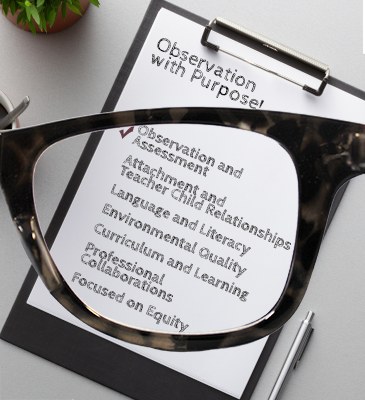Observation is important to understand a child and to assess and enhance learning and development. Observations take many forms, both formal and informal. This module explains the use of observation within teaching, examines how observation enhances interactions, identifies best practices for observing an individual child or group of children, and introduces a variety of observation tools and methods that are commonly used in early childhood programs. (3 hours)

Eyeglasses looking over a clipboard with the series titles.
Ready? View for free in On Demand!
Objectives
-
Identify the reasons and uses for observing individual children and groups of children in an ECE program.
-
Use the observation cycle to guide observations.
-
Examine approaches to observation by reflecting on interactions with children.
-
Review the different types of observation tools, both formal and informal, that are available to early childhood professionals.
-
Discover how observation can inform assessments for all aspects of early childhood programming: child learning, curriculum, interactions, program practices, and collaborations.
This module is part of a "Observation with Purpose" series. Click here for a series flyer.

